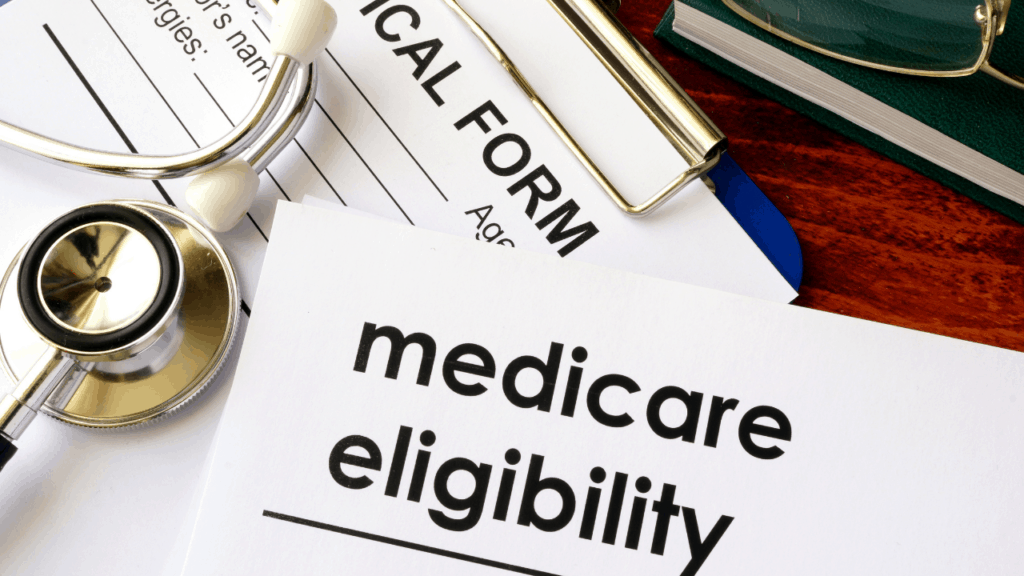Can I Lose My Medicare Eligibility?

Are you concerned about losing your Medicare eligibility? While Medicare is designed to offer lifelong coverage for those who qualify, certain situations can put your benefits at risk. Understanding these situations is essential to ensure you maintain uninterrupted access to healthcare services.
In this guide, we’ll explore key scenarios that could lead to losing your Medicare coverage and explain what you can do to prevent it.
Factors That Could Lead to Losing Your Medicare Coverage
Below are the primary reasons that can jeopardize your Medicare eligibility:
1. Non-Payment of Premiums
If you’re enrolled in Original Medicare, Part B generally requires monthly premiums. Failing to pay these premiums can result in losing your Medicare coverage:
- First Notice: You will receive a notice reminding you to make your payment.
- Second Notice (Delinquent Notice): If your premium remains unpaid, you’ll get another notice. You must pay the overdue amount by the 25th of the month listed in this notice.
- Termination: If you fail to pay after the second notice, Medicare may terminate your coverage, affecting Medicare Advantage, Part D, and supplemental plans.
2. Providing False Information or Medicare Fraud
Intentionally providing incorrect or misleading information during enrollment, or engaging in Medicare fraud, can lead to losing your Medicare eligibility.
Examples of Medicare fraud include:
- Misrepresenting your medical history or conditions on your application.
- Allowing someone else to use your Medicare card.
- Submitting claims for services you never received.
Medicare fraud doesn’t just risk losing coverage; it can also result in legal consequences such as fines, penalties, or even criminal charges.
3. Ending of Social Security Disability Insurance (SSDI) Benefits
If your Medicare eligibility is tied to receiving SSDI benefits, coverage might end when these benefits stop. Typically, your Medicare coverage continues for 93 months after your SSDI benefits end, providing transitional healthcare coverage.
Special Circumstances for End-Stage Renal Disease (ESRD):
If you have ESRD, Medicare coverage lasts:
- Up to 12 months after dialysis ends, or
- Up to 36 months following a kidney transplant.
Being aware of these timelines helps in planning future healthcare needs.
4. Moving Outside Your Medicare Plan’s Coverage Area
Medicare Advantage (Part C) and Part D plans are often restricted to specific geographic service areas. If you relocate to a new ZIP code outside your current plan’s area, your existing coverage may end.
However, Medicare allows a Special Enrollment Period (SEP) if you relocate, enabling you to select a new plan suitable for your new location.
5. Your Medicare Plan is Changed or Discontinued
Medicare Advantage and Part D plans, offered by private insurance companies, may occasionally be changed or discontinued. If your plan ends, your coverage under that plan ceases.
However, you’ll qualify for a Special Enrollment Period (SEP), allowing you to enroll in a different Medicare plan that matches your healthcare requirements.
How to Re-Enroll in Medicare if Coverage is Lost
If you lose Medicare coverage, you have several options for re-enrollment:
- General Enrollment Period (GEP): Runs from January 1st to March 31st annually, with coverage starting the first of the following month.
- Special Enrollment Period (SEP): Available for qualifying life events like relocation or loss of other coverage.
Understanding enrollment periods helps ensure seamless continuation of coverage.
Get Expert Support from Plan Medicare
If you’ve lost Medicare coverage or have questions about maintaining eligibility, Plan Medicare’s experienced advisors are here to help—completely free of charge.
Call us today at 516-900-7877 or schedule an appointment online.
Frequently Asked Questions (FAQs)
What causes you to lose Medicare benefits?
Typically, unpaid premiums, fraudulent activities, or ending of SSDI benefits can lead to loss of coverage.
Can Medicare terminate your coverage?
Yes, Medicare can terminate your coverage for reasons like non-payment of premiums after multiple notices.
Is there an income threshold at which Medicare coverage ends?
No. Medicare eligibility isn’t based on income. Eligibility primarily depends on age, disabilities, or medical conditions.
What should you do if your Medicare card is lost?
Log into your Medicare account to request or print a replacement card easily online.






